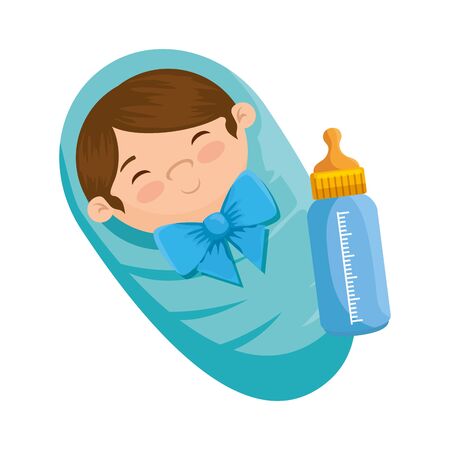Introduction to Postnatal Depression in the UK
Postnatal depression (PND) is a significant mental health condition that affects many mothers across the United Kingdom. It typically arises within the first year after childbirth and goes beyond the usual baby blues that most women may experience in the initial days following delivery. In the UK, it is estimated that up to 1 in 10 women are affected by postnatal depression, making it a prevalent concern within British society. Recognising PND early is crucial not only for the wellbeing of mothers but also for their families and the healthy development of their infants. The stigma surrounding mental health can sometimes prevent mothers from seeking help, which makes awareness and understanding of this condition all the more vital. Addressing postnatal depression openly encourages a supportive environment and helps ensure that mothers receive appropriate care and guidance during this challenging period.
Common Causes and Risk Factors
Postnatal depression is a complex condition influenced by a range of biological, psychological, and social factors. In the UK, these influences can be unique due to cultural norms, healthcare access, and social support systems. Understanding these risk factors is essential for early identification and effective support.
Biological Factors
After childbirth, dramatic hormonal shifts—such as drops in oestrogen and progesterone—can affect mood regulation. Genetic predisposition also plays a role; mothers with a family history of depression or mental health issues are at higher risk. Additionally, physical health complications during pregnancy or labour, such as pre-eclampsia or traumatic birth experiences, may increase vulnerability.
Key Biological Contributors
| Factor | Description |
|---|---|
| Hormonal Changes | Sudden changes in hormone levels after birth impact emotional stability. |
| Genetic Predisposition | A family history of mental health disorders increases risk. |
| Physical Health Complications | Conditions like gestational diabetes or difficult labour can contribute to PND. |
Psychological Factors
Mental health history is a major factor; women with previous episodes of depression, anxiety, or trauma are more susceptible. Low self-esteem, perfectionism, and unrealistic expectations about motherhood—often fuelled by social media—can heighten stress and feelings of inadequacy. In the UK context, the pressure to keep calm and carry on may discourage mothers from seeking help when struggling emotionally.
Social Factors Relevant to UK Mothers
The structure of social support in the UK significantly impacts maternal mental health. Limited access to extended family (especially for those living in urban areas or as immigrants), financial pressures linked to maternity leave policies, and housing instability are notable contributors. Cultural attitudes towards mental health—though improving—may still lead to stigma around postnatal depression.
Social Risk Factors in the UK Context
| Factor | Description |
|---|---|
| Lack of Social Support | Isolation from friends and family increases vulnerability. |
| Financial Stress | Maternity leave limitations and childcare costs cause additional pressure. |
| Cultural Stigma | Persistent stigma around mental health may hinder seeking help. |
| Relationship Difficulties | Tension with partners or family members can exacerbate symptoms. |
Summary Table: Key Risk Factors for Postnatal Depression in UK Mothers
| Category | Main Risk Factors |
|---|---|
| Biological | Hormonal changes, genetics, physical complications during birth |
| Psychological | Mental health history, low self-esteem, unrealistic expectations |
| Social (UK-specific) | Lack of support, financial strain, housing issues, cultural stigma |
The interplay between these factors means that every mother’s experience is unique. Recognising the common causes and risk factors enables better awareness among families and healthcare professionals across the UK.

3. Recognising the Symptoms of Postnatal Depression
Identifying postnatal depression (PND) can be challenging, especially as many symptoms overlap with the typical experiences of new motherhood. However, recognising the difference between “baby blues” and persistent depressive symptoms is crucial for early intervention. In the UK, awareness of these signs among mothers, family members, and healthcare professionals such as GPs, health visitors, and midwives is key to ensuring timely support.
Emotional Symptoms
Mothers experiencing PND often report a persistent low mood that lasts for weeks or months, rather than days. Other emotional symptoms include:
- Frequent tearfulness without obvious reason
- Feelings of hopelessness, guilt, or worthlessness
- Anxiety or excessive worry about the baby’s wellbeing
- Lack of enjoyment in usual activities or bonding with the baby
Physical Symptoms
While tiredness is common after childbirth, PND can bring more severe physical symptoms that interfere with daily life. These may include:
- Constant fatigue even after sleeping
- Changes in appetite (either increased or loss of appetite)
- Disturbed sleep patterns unrelated to baby’s needs
- Bodily aches and pains with no clear cause
Behavioural Symptoms
Mothers affected by PND might display noticeable changes in behaviour, including:
- Withdrawing from social interactions or avoiding family and friends
- Lack of motivation for self-care tasks such as showering or eating regular meals
- Difficulties concentrating or making decisions (for example, struggling to follow advice from a health visitor)
- Irritability or anger outbursts towards loved ones or the baby
Symptom Comparison Table: Baby Blues vs. Postnatal Depression
| Symptom Type | Baby Blues (Common) | Postnatal Depression (PND) |
|---|---|---|
| Duration | A few days up to 2 weeks post-birth | Persists beyond 2 weeks and can last months if untreated |
| Mood Changes | Mild sadness, mood swings | Pervasive sadness, hopelessness, frequent crying spells |
| Anxiety/Worry | Mild concerns about baby care | Overwhelming anxiety affecting daily functioning |
| Sleep Disturbance | Mainly due to newborn care needs | Poor sleep regardless of babys routine; insomnia common |
| Bonding with Baby | No significant issues forming attachment | Difficulties connecting emotionally with baby persistently |
| Seeking Help in UK NHS System | Usually not needed unless symptoms worsen or persist (GP/Health Visitor may offer reassurance) |
NHS support recommended via GP referral, possible mental health team involvement (Perinatal Mental Health Services available across the UK) |
The Role of UK Healthcare Professionals in Symptom Recognition
The NHS encourages open discussions about mental health during postnatal check-ups. Health visitors routinely screen for PND using standardised questionnaires like the Edinburgh Postnatal Depression Scale (EPDS). If you notice these symptoms in yourself or someone else, it is important to speak openly with your GP or health visitor. Early recognition means mothers can access tailored support—from talking therapies to peer groups—ensuring a healthier recovery journey for both mother and baby.
4. Early Signs and Why They Shouldn’t Be Ignored
Recognising the early warning signs of postnatal depression is crucial for timely intervention, especially within the UK context where support systems and health services are in place to help mothers and families. Many women may initially dismiss their symptoms as “just the baby blues,” but understanding the difference can make a significant impact on recovery and long-term wellbeing.
Common Early Warning Signs
| Early Sign | Description | Why It Matters (UK Context) |
|---|---|---|
| Persistent Low Mood | Feeling sad, tearful, or hopeless most days for more than two weeks | May be overlooked as tiredness; NHS recommends seeking help if this persists |
| Loss of Interest | No longer enjoying activities or social contact, even with close friends or family | Isolation is common among new mums; local health visitors can provide support |
| Irritability or Anger | Unusual irritability towards partner, baby, or others | Could strain relationships and hinder bonding with the baby; early intervention supports family dynamics |
| Anxiety or Excessive Worry | Constant worry about the baby’s health, safety, or one’s own ability as a parent | Mental health charities like Mind UK highlight that anxiety often co-occurs with depression in new mums |
| Trouble Sleeping (unrelated to babys sleep patterns) | Difficulty falling asleep or staying asleep even when the baby sleeps soundly | Lack of rest worsens mental health; GPs in the UK can offer practical sleep advice and referrals if needed |
| Appetite Changes | Eating much less or more than usual without intent to lose/gain weight | Nutritional status impacts mood and recovery; dietitians can provide tailored advice through NHS services |
| Difficulties Bonding With Baby | Feeling detached from the baby or unable to enjoy time together | This may affect infant development; health visitors routinely assess mother-baby interactions in the UK |
The Importance of Timely Recognition in the UK Setting
The British healthcare system is structured to facilitate early detection of postnatal depression. Health visitors, midwives, and GPs play a pivotal role in routine postnatal checks. However, stigma around mental health can still prevent mothers from speaking up. Prompt recognition and action mean access to counselling, peer support groups, and nutritional interventions sooner—improving outcomes for both mother and child.
What Can Families and Friends Do?
- Encourage open conversations about mental health without judgement.
- Look out for subtle changes in behaviour or mood.
- Support new mothers in seeking advice from their GP or local health visitor at the earliest sign of concern.
Nutritional Note:
A balanced diet rich in omega-3 fatty acids, B-vitamins, iron, and adequate hydration supports mental wellbeing during the postnatal period. In the UK, vitamin D supplementation is also recommended for mothers—speak to your healthcare provider for personalised guidance.
Ignoring early signs of postnatal depression can delay recovery and increase risks for both mum and baby. In the supportive environment of the UK’s NHS and community networks, acting early ensures mothers receive compassionate care tailored to their individual needs.
5. Support Systems and Resources Available in the UK
In the United Kingdom, there is a growing recognition of the importance of mental health care for new mothers, especially in relation to postnatal depression (PND). Understanding the support systems available can empower mothers and their families to seek help early and reduce stigma around maternal mental health challenges.
NHS Support Services
The National Health Service (NHS) provides a comprehensive range of services for women experiencing postnatal depression. These include routine screening during antenatal and postnatal appointments, referral pathways to specialist perinatal mental health teams, and access to psychological therapies such as cognitive behavioural therapy (CBT). Health visitors and GPs play a vital role in recognising symptoms early and guiding mothers to appropriate care. For more severe cases, mother and baby units are available where women can receive intensive treatment without being separated from their infants.
Key NHS Support Options
| Service | Description |
|---|---|
| GP Consultations | Initial assessment, advice, and onward referrals |
| Health Visitor Support | Regular check-ins, emotional support, signposting to resources |
| Perinatal Mental Health Teams | Specialist mental health care tailored for pregnant and new mums |
| IAPT (Improving Access to Psychological Therapies) | Free talking therapies including CBT, available via self-referral or GP |
| Mother & Baby Units | Inpatient care facilities allowing mothers to stay with their babies during treatment |
Community Resources and Charities
Apart from NHS provisions, several charities and community groups offer valuable support. Organisations such as PANDAS Foundation, Mind, and the Association for Post Natal Illness provide helplines, peer support groups, online forums, and educational resources. Local children’s centres often run drop-in sessions or workshops focusing on parental well-being. Many mums find these community-based resources particularly helpful due to their flexible nature and focus on peer connection.
Cultural Attitudes towards Postnatal Mental Health in the UK
Attitudes towards postnatal depression have shifted considerably in recent years within the UK. Campaigns led by public figures and mental health organisations have raised awareness about the realities of PND, helping to reduce stigma. However, some cultural barriers remain—especially among older generations or certain ethnic groups where discussing mental health is less common. Encouraging open conversations within families and communities remains key to ensuring that mothers feel comfortable seeking help.
Summary Table: Support Systems for Postnatal Depression in the UK
| Type of Support | Provider/Organisation | Access Method |
|---|---|---|
| Medical Assessment & Treatment | NHS (GPs, Health Visitors) | NHS appointment / Referral |
| Counselling & Therapy | IAPT/NHS Talking Therapies | Self-referral / GP referral |
| Peer Support Groups | PANDAS Foundation, Local Charities | Online / In-person groups |
| Crisis Helplines & Advice | MIND, Samaritans, PANDAS Foundation | Phone / Email / Online chat |
The UK offers a robust framework of both medical and community-based support for mothers experiencing postnatal depression. By promoting awareness and utilising these varied resources, families can help ensure that no mother faces postnatal depression alone.
6. Promoting Maternal Wellbeing through Nutrition and Lifestyle
Supporting maternal mental health in the postnatal period requires a holistic approach, particularly when it comes to nutrition and lifestyle choices. In the UK, where dietary habits and lifestyle can vary widely, tailored advice is crucial for mothers navigating the challenges of postnatal depression (PND).
Professional Nutritional Advice for Postnatal Mental Health
A balanced diet rich in essential nutrients can play a significant role in mood regulation and overall mental wellbeing. Key nutrients such as omega-3 fatty acids, B vitamins, iron, and vitamin D are particularly important for new mothers. Many women in the UK may be at risk of deficiencies due to dietary preferences or limited sun exposure, especially during the winter months.
Essential Nutrients for UK Mothers
| Nutrient | Role in Mental Health | UK-Friendly Food Sources |
|---|---|---|
| Omega-3 Fatty Acids | Supports brain health and reduces inflammation | Oily fish (salmon, mackerel), walnuts, flaxseeds |
| B Vitamins (especially B6, B12, Folate) | Aids neurotransmitter function and energy levels | Wholegrains, leafy greens, eggs, fortified cereals |
| Iron | Prevents fatigue and supports cognitive function | Lean red meat, lentils, spinach, fortified breads |
| Vitamin D | Regulates mood; deficiency linked to depression | Egg yolks, oily fish, fortified milk; supplements recommended October–March |
Lifestyle Adjustments to Enhance Wellbeing
Beyond diet, adopting positive lifestyle habits can help mitigate symptoms of PND. Simple adjustments tailored to British living can make a meaningful difference:
- Regular Physical Activity: Gentle exercise such as walking in local parks or attending mum-and-baby fitness classes can boost endorphins.
- Routine Sleep Hygiene: Prioritising rest by establishing a consistent bedtime routine—even short naps—can support recovery from sleep deprivation.
- Social Connection: Engaging with local mother-and-baby groups or community centres provides emotional support and combats isolation.
- Mindfulness Practices: Techniques such as deep breathing or guided meditation apps (like Headspace or Calm) are accessible ways to reduce stress.
The Role of Professional Support in the UK
If symptoms of postnatal depression persist, seeking professional advice is vital. GPs, health visitors, and registered dietitians across the UK offer tailored support. Early intervention—whether through talking therapies, peer support groups like NCT or Home-Start UK, or nutritional counselling—can greatly improve outcomes for both mothers and their families.
Nutritional & Lifestyle Tips at a Glance
- Plan weekly meals with plenty of fruit and veg from local markets.
- Limit processed foods high in sugar and saturated fat.
- Make time for gentle activity outdoors whenever possible.
- Dont hesitate to ask your GP about vitamin D supplementation.
Caring for your nutritional needs and embracing healthy lifestyle habits are practical steps that empower UK mothers to nurture both their physical and mental wellbeing throughout the postnatal period.


